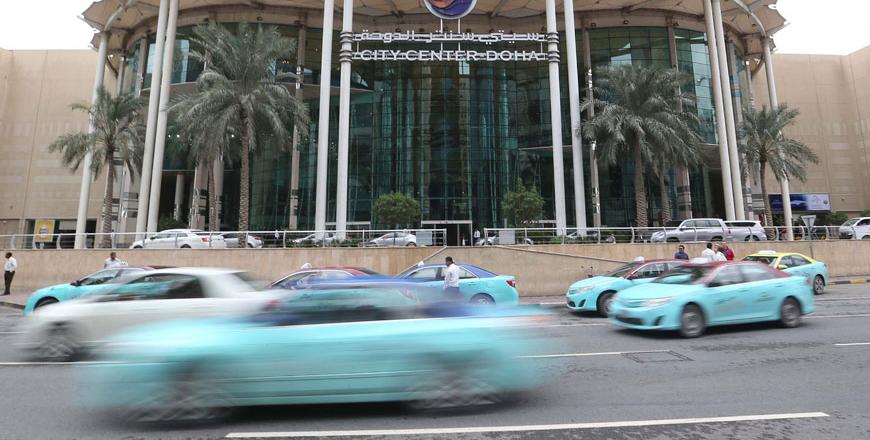You are here
Kuwait ousts blue-collar expats as economic woes bite
By AFP - Sep 11,2020 - Last updated at Sep 11,2020

An Arab blacksmith works at a workshop in Kuwait City on Thursday (AFP photo)
KUWAIT CITY — After more than 45 years washing cars in Kuwait to make ends meet, Egyptian Marzouq Mohammed will soon be kicked out of the country as economic woes and coronavirus stoke anti-foreigner sentiment.
The 65-year-old is among tens of thousands who will be forced to leave the oil-rich country, hard hit by collapsing crude prices.
Last month, the cash-strapped government said that from January it will no longer renew work permits for expatriates over the age of 60 without university degrees.
"Now they tell us this? Now they say 'he's 65, he must leave'. Leave where and to do what? We spent a lifetime here," Mohammed said.
Like its Gulf neighbours, Kuwait depends heavily on cheap foreign labour, mainly Middle Eastern and Asian workers.
Many arrive as young adults to work in blue-collar jobs, occupations most Kuwaitis shun in favour of high-paying government positions.
But collapsing oil revenues, a vital source of state funds, are forcing a rethink.
Prime Minister Sabah Al-Khaled Al-Sabah has said the number of non-Kuwaitis should be capped at 30 per cent of the 4.8 million population, down from 70 per cent currently, to "resolve the demographic imbalance".
The country must rely more on Kuwaitis "to work in all professions" as it seeks to diversify its economy, he said.
But for Iranian Hasan Ali, also among the more than 68,000 people whose visas will not be renewed, leaving a country where he has spent more than half his 67 years will be heartbreaking.
"I got married here, I had my children here, I lived my life here," Ali, a greengrocer at the Al-Mubarakiya souq in Kuwait City, said.
"It's difficult that I have to leave 'just like that' after all these years."
Business sense?
The coronavirus pandemic, which disproportionately hit migrant workers living in crowded lodgings, spotlighted the presence of a community increasingly seen as a burden -- particularly as the downturn snuffed out their jobs.
One famous Kuwaiti actress made headlines at the height of the panic in April by saying foreigners should be expelled to free up hospital beds for locals.
"We should send them out... put them in the desert. I'm not against humanity, but we have reached a stage where we're fed up," Hayat Al-Fahad told a local television channel.
Her comments sparked outrage on social media.
TV presenter Nadia Al-Maraghi faced legal action for "inappropriate rhetoric" after visiting a holding centre for foreign workers being ejected for visa violations, where she and a friend joked that they had to wear masks because of the stink.
While the latest move to slash the migrant population has been welcomed by some, experts say the decision will hurt the private sector and stifle consumption.
The restaurants union has warned it could hit businesses already struggling after months of lockdown.
M.R. Raghu, head of research at Kuwait Financial Centre (Markaz), said the strategy was to create jobs for Kuwaitis while retaining more skilled foreign workers.
"By reducing the expats who do not add much value to the economy, jobs can be freed up to provide employment opportunities for nationals," he said.
However, despite a drive to encourage locals to enter the private job market, only about 72,000 locals work in the private sector -- just over five percent of the country's 1.4 million citizens.
"The government would also need to take steps to make the private sector much more attractive for nationals, who currently prefer to work in the public sector," Raghu said.
'Leave everything behind'
Populations across the Gulf are dipping as the coronavirus and the ensuing oil crunch ravage economies.
Kuwait's crunch has been particularly acute. Last month, Finance minister Barak Al-Sheetan warned that there would not be enough cash to pay state salaries beyond October unless the government can secure fresh funds.
The country has one of the world's largest sovereign wealth funds, known as the Future Generations Fund, with assets estimated at $550 billion -- set aside for a post-oil era.
Withdrawals require approval from parliament.
But the legislature accuses the government of mismanaging public finances, and has rejected a bill to borrow 20 billion dinars ($65 billion) over the next 30 years.
It is a rude reckoning for a country once seen as the most dynamic in the Gulf, but where generous subsidies and public sector salaries now make up three-quarters of oil-fuelled state budgets.
But Syrian Khalil Abdullah, a 63-year-old mechanic, said he still hoped for a reprieve to let him stay in Kuwait into his old age.
"Those who have shops and companies, is it possible for them to just leave everything behind and go?" he asked.
Related Articles
Bayt.com and Mercy Corps Amman are joining efforts to provide match-making tool for blue-collar jobs in Jordan.
DUBAI — Mustafa, a hipster Pakistani graphic artist, has a month to find a new job or be forced to leave Dubai among an exodus of expatriate
DOHA — Qatar's only directly elected body is to discuss introducing family-only days at major shopping malls in a move dubbed a "bachelor ba

















